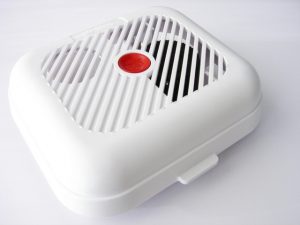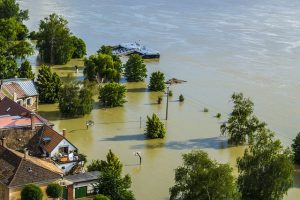Top Tips for Protecting Your Home
Our homes are our safe retreats from the world, but houses can become damaged or robbed, leaving the families who reside in them feeling unsafe. Here we present some top tips for protecting your home against all kinds of damage to help you keep your loved ones safe.
Protection from burglary
Trim the bushes: Shrubs and trees in your garden can be the perfect hiding places for burglars as they watch your house unnoticed. Keeping your foliage neatly trimmed will increase your visibility around your property, so you’ll notice suspicious characters hanging around your home much earlier.
Increase your privacy: Many burglaries occur when opportunistic thieves notice something expensive that they could sell on, so protect your home from prying eyes by drawing your curtains or blinds and keeping expensive items out of sight.
Motion detection lighting: Most criminals act under the cover of darkness so that the chances of them being spotted is greatly reduced. Installing motion detection lighting will reduce the risk of thieves targeting your home.
Put your lights on timers: If you’re going to be out of the house for a long period of time, set your lights on timer mode so that they’ll come on in the evenings. This will make it seem like people are still in your home.
Protection from fires
Add more smoke alarms: While all homes should have working smoke alarms in their homes, homeowners often think one in the kitchen is enough. It isn’t! You should install at least one smoke alarm on every level of your house to give yourself enough warning to vacate the premises.
Check your batteries: What good is a smoke alarm if the batteries are dead? You should be checking the batteries in your smoke alarm at least once a month.
Store tea towels and flammables safely: Your kitchen is the most likely place a fire will start, with open flames and excessive heat being used many times a day. Ensure you are using your appliances in the most sensible fashion and store any flammable materials such as tea towels well away from any appliance, even when not in use.
Regularly clean your appliances: A buildup of grease in the oven or on the hob is a fire trap, and your toaster can collect enough breadcrumbs to initiate a fire, so ensure you are regularly cleaning all of your appliances.
Unplug your appliances: Overloaded sockets can spark and cause fires, and turning the switches off may not be enough of a precaution to prevent a fire breaking out. Always unplug any electrical appliance you aren’t using anymore, especially at night or if you are leaving the house.
Dispose of cigarettes properly: Use an ashtray to completely stub out your cigarette as if you simply throw the end into a bin, it may still be hot enough to start a fire.
Use candles carefully: Candles can drip hot wax and start a fire, or catch materials that are in the vicinity. Never leave candles unattended and ensure they are completely extinguished after use.
Have an escape plan: If the worst was to happen, you need to have a plan in action to ensure that all of your family knows the best way to vacate the house. Spend an afternoon practicing the fire plan so that even the youngest member of your family will know what to do in an emergency.
Protection from floods
Keep an eye on the weather: If you live in a flood risk area, it’s always a good idea to keep an eye on the weather so you can be prepared for heavy rainfall.
Use sandbags: Perhaps the most traditional means of flood protection, sandbags can be used to prevent too much water finding its way to your property. Pack them tightly together and a good few inches higher than the expected rainfall.
Protect your drains: Excess water can find its way into the home through our drains, so fix yours with ‘non-return’ valves to prevent water backing up.
Raise your electricals: If your property is at serious risk of flooding, it may be best to consider raising your fuse boxes and electricals to be at least 5 feet above ground level to reduce the damage that can occur.
Waterproof: Use waterproof covers to protect your ventilation bricks and other weak points that can allow water to get into your property. It is also recommended that you replace your interiors with water resistant materials such as tiling and plastics to prevent water damage badly affecting your home.
Insure your property
To protect your home against the potential losses of natural disasters, fires or theft, invest in a good quality insurance policy to ensure you can get your life back on track as quickly as possible.
The Insurance Store provide unbeatable home insurance to the areas of St Albans and Harpenden, covering homeowners from all varieties of damage and loss, including:
- Fire
- Lightening
- Explosions
- Impact
- Theft
- Flood
- Fire
- & more!
We also provide contents insurance to cover all your valuable possessions against flood damage, theft or accidental damage, so you can be confident that every aspect of your home is protected. Get in contact today for more information, we’ll be happy to help.


